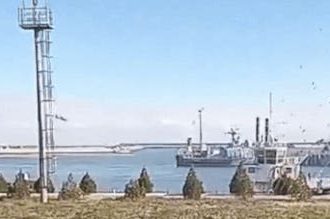Unlock the Editor’s Digest for free
Roula Khalaf, Editor of the FT, selects her favourite stories in this weekly newsletter.
A delegation of Arab and Muslim leaders visited China on Monday as they stepped up efforts to build an international consensus to pressure Israel to end its campaign against Hamas in Gaza.
The delegation of foreign ministers and other officials arrived in Beijing as Israeli forces advanced through the south and east of Gaza City, having taken full control of al-Shifa hospital, raising concerns about a humanitarian catastrophe in the besieged enclave.
The mission is seeking “an immediate ceasefire in Gaza Strip” and “to exert pressure to launch a serious political process to achieve lasting and comprehensive peace” and ensure the delivery of humanitarian aid to Gaza, said Saudi foreign minister Prince Faisal bin Farhan, who is leading the delegation, according to a statement on Saudi state media.
The visit comes amid mounting frustration in Arab and Muslim countries at the refusal of the US — long the dominant diplomatic broker in the Middle East — to throw its weight behind calls for a ceasefire, and as China steps up efforts to bolster its influence in the region.
Arab and Muslim leaders have been outraged by the scale of death and destruction in Gaza, which has raised fears that Israel’s offensive risks stoking domestic and regional threats to their security.
The delegation, which consists of Saudi Arabian, Jordanian, Egyptian, Indonesian, Palestinian and Organisation of Islamic Cooperation officials, aims to meet representatives from all the permanent members of the UN Security Council.
Foreign minister Wang Yi, who received the delegation, said the most urgent task was to “achieve an immediate ceasefire” in Gaza and that Beijing “firmly” supported “the just cause of the Palestinian people”, adding: “China is a good friend and brother to many Arab and Islamic countries.”
“China opposes any forced displacement and relocation of Palestinian civilians,” Wang said. “Israel should stop collective punishment of the people of Gaza, open humanitarian corridors as soon as possible, and prevent a larger-scale humanitarian disaster.”
The statement made no mention of Hamas, though Wang said China would work with Middle Eastern countries to secure the release of the “detained persons”, which could add to Israel’s scepticism about Beijing’s ability to play a neutral role.
The visit took place as aid agencies stepped up warnings about the dire humanitarian conditions in Gaza, which has been starved of fuel, water, medicine and food since Israeli forces began their air and land assault on the strip last month.
On Monday, the health ministry in Gaza said 12 people had been killed in an Israeli strike on the Indonesian hospital in Gaza. The Israeli military said it was looking into the claim.
Overall, Israel’s offensive has killed 12,200 people in Gaza, including nearly 5,000 children, according to Palestinian health officials. Hamas’s October 7 attack on Israel, which triggered the war, killed about 1,200 people, according to Israeli officials.
On Saturday, hundreds of patients left al-Shifa, joining the 1.7mn of Gaza’s 2.3mn population displaced by the fighting.
Israel claims al-Shifa sits on top of a dense network of underground tunnels housing Hamas command centres. The country’s military on Sunday gave details of a 55m tunnel found at the hospital last week, which it said was hidden under a booby-trapped pick-up truck loaded with weapons.
It also revealed security camera videos that appeared to show Hamas fighters bringing two hostages from Israel into the hospital on October 7.
Hamas and doctors at the hospital have denied that it is used for military purposes and accused Israel of seeking an excuse to take over the facility.
The World Health Organization visited al-Shifa on Saturday and said the hospital was a “death zone”, adding that its team had found a mass grave containing 80 bodies.
However, despite the mounting international pressure, Israel has refused to budge. Prime Minister Benjamin Netanyahu said on Saturday night that he would reject any ceasefire that was not accompanied by a release of hostages held by Hamas. “We will continue to fight until victory,” he said.
Israel’s ambassador to China said in a statement on Monday that the UN Security Council should call for the release of the hostages rather than a ceasefire, adding that any attempt to pressure Israel over humanitarian assistance was “politically motivated”.
While the US is the only foreign power that has significant leverage over Israel, China’s ties with the Middle East have grown significantly over the past two decades, mainly through trade with the region, which is the biggest supplier of oil and gas to the Asian superpower.
Beijing has historically not sought to challenge Washington’s diplomatic and security dominance in the Arab world, but there have been signs that China is looking to raise its profile in the region.
In March, it brokered an agreement between Saudi Arabia and Iran, leading to the regional rivals agreeing to restore diplomatic relations that had been severed in 2016, in a diplomatic coup for Beijing.
Read the full article here




